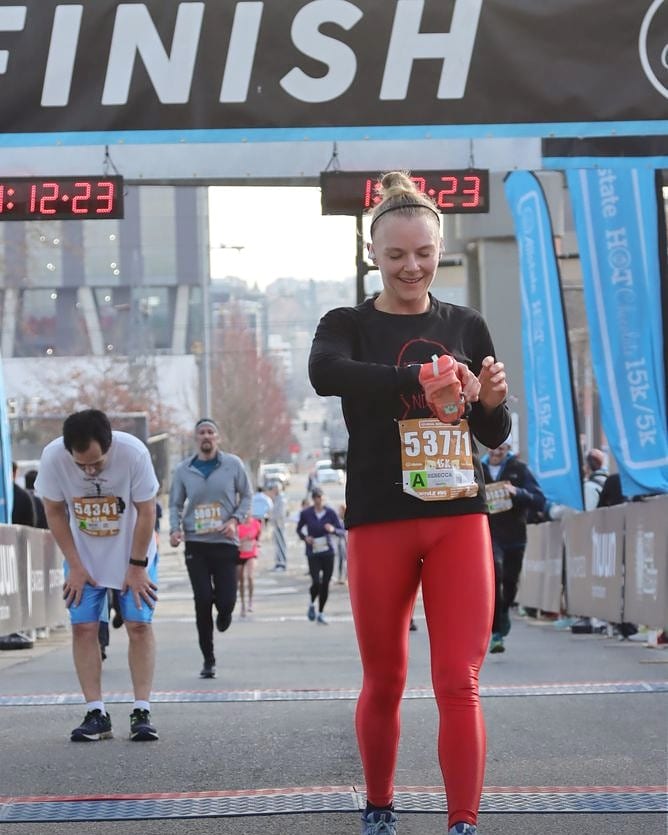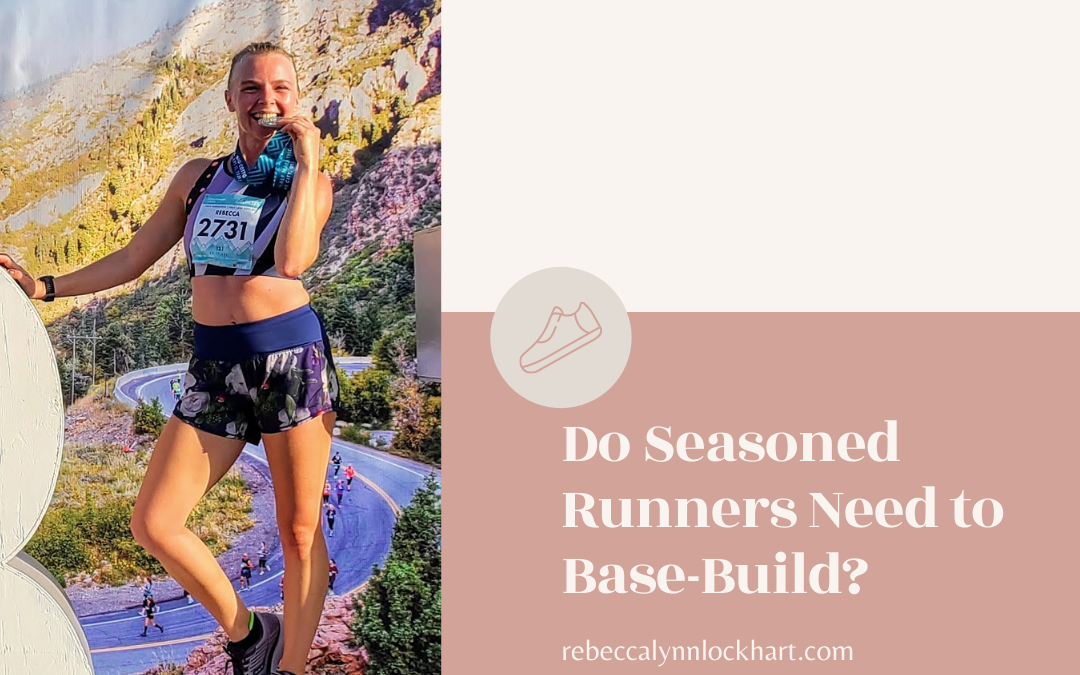So you’ve been reading all my posts this month about aerobic base-building. You understand what it is now, but you’ve been running for YEARS. Do you really still need to do base-building?
The answer my friends, is yes.
Aerobic Base-Building for Seasoned Runners
Yes, even if you’ve been running for a long time, you still need phases of training where you are focusing on base-building. We can always improve upon our aerobic capacity. Increasing our aerobic capacity will allow us to run faster at lower heart rates – which will translate to running faster for longer. What runner doesn’t want that??
The best time for seasoned runners to base-build is in the off-season after a tough training block.
If you were just training for a marathon, you should take 2 full weeks off of running post-race. A half you’ll need at least a week or up to 10 days. After that I always recommend going into a base-building phase of training and increasing your strength training sessions for the next couple months before the next training cycle begins.

How Long Should a Base-Building Phase Be
If you’ve been running for years, 4 weeks is probably a sufficient timeframe for base-building. But understand that even during other phases of training, you still want to do base-building runs. The majority of your runs should be easy, Zone 2 runs with 1-2 harder workouts per week. It’s important to run easy enough that our bodies can recover. Running is hard on our bodies. It’s a lot of impact and repetitive movement patterns. Be kind to your body and it will give back for decades to come.
How to do a base-building phase
Base-building for seasoned runners is just a little different than for beginners. Our runs can typically be longer and the overall phase of training will be shorter. You still want to increase volume in a safe way (general rule of thumb is no more than a 10% increase in volume, but remember this is nuanced).
Want a free plan? Get your free intermediate base-building plan right here!
Remember: this post is for informational purposes only and may not be the best fit for you and your personal situation. It shall not be construed as medical advice. The information and education provided here is not intended or implied to supplement or replace professional medical treatment, advice, and/or diagnosis. Always check with your own physician or medical professional before trying or implementing any information read here.
Are you doing base-building training blocks?
What’s your go-to running plan in the off-season? Sound off in the comments below!

0 Comments